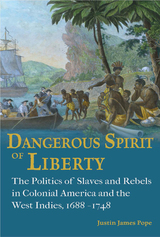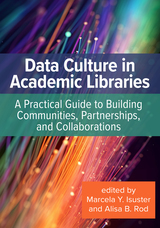9 start with R start with R
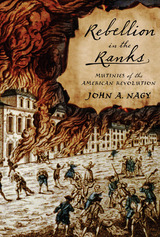
How General Washington Avoided the Peril From Within His Own Forces
"It gives me great pain to be obliged to solicit the attention of the honorable Congress to the state of the army...the greater part of the army is in a state not far from mutiny...I know not to whom to impute this failure, but I am of the opinion, if the evil is not immediately remedied and more punctuality observed in future, the army must absolutely break up."—George Washington, September 1775
Mutiny has always been a threat to the integrity of armies, particularly under trying circumstances, and since Concord and Lexington, mutiny had been the Continental Army's constant traveling companion. It was not because the soldiers lacked resolve to overturn British rule or had a lack of faith in their commanders. It was the scarcity of food—during winter months it was not uncommon for soldiers to subsist on a soup of melted snow, a few peas, and a scrap of fat—money, clothing, and proper shelter, that forced soldiers to desert or organize resistance. Mutiny was not a new concept for George Washington. During his service in the French and Indian War he had tried men under his command for the offense and he knew that disaffection and lack of morale in an army was a greater danger than an armed enemy.
In Rebellion in the Ranks: Mutinies of the American Revolution, John A. Nagy provides one of the most original and valuable contributions to American Revolutionary War history in recent times. Mining previously ignored British and American primary source documents and reexamining other period writings, Nagy has corrected misconceptions about known events, such as the Pennsylvania Line Mutiny, while identifying for the first time previously unknown mutinies. Covering both the army and the navy, Nagy relates American officers' constant struggle to keep up the morale of their troops, while highlighting British efforts to exploit this potentially fatal flaw.

A rare and remarkable example of Indo-Persian autobiography by the poet Mir Taqi Mir.
Mir Muhammad Taqi Mir (1723–1810) is the author of six collections of Urdu poetry and widely regarded as the finest ghazal poet in that language. However, he also wrote one volume of verse and three prose works in Persian, including Zikr-e Mir, or Remembrances, a rare and remarkable example of Indo-Persian autobiography.
Remembrances recounts Mir’s ancestry, his father’s spiritual quest, and his own struggles to find education and patronage both in his native Agra and in Delhi. While the work may offer few glimpses into the author’s private life or professional literary activity, it presents a vivid picture of political events and intrigues between 1760 and 1789, when north India witnessed extensive warfare.
The Persian text, presented here in the Naskh script, includes all the author’s additions and alterations properly identified and chronologically arranged, along with a newly revised English translation. Mir concludes his autobiography with a series of jokes and witty anecdotes, some of them quite risqué, that are printed here for the first time.
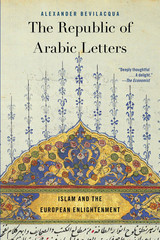
Winner of the Herbert Baxter Adams Prize
A Longman–History Today Book Prize Finalist
A Sheik Zayed Book Award Finalist
Winner of the Thomas J. Wilson Memorial Prize
A Times Literary Supplement Book of the Year
“Deeply thoughtful…A delight.”—The Economist
“[A] tour de force…Bevilacqua’s extraordinary book provides the first true glimpse into this story…He, like the tradition he describes, is a rarity.”
—New Republic
In the seventeenth and eighteenth centuries, a pioneering community of Western scholars laid the groundwork for the modern understanding of Islamic civilization. They produced the first accurate translation of the Qur’an, mapped Islamic arts and sciences, and wrote Muslim history using Arabic sources. The Republic of Arabic Letters is the first account of this riveting lost period of cultural exchange, revealing the profound influence of Catholic and Protestant intellectuals on the Enlightenment understanding of Islam.
“A closely researched and engrossing study of…those scholars who, having learned Arabic, used their mastery of that difficult language to interpret the Quran, study the career of Muhammad…and introduce Europeans to the masterpieces of Arabic literature.”
—Robert Irwin, Wall Street Journal
“Fascinating, eloquent, and learned, The Republic of Arabic Letters reveals a world later lost, in which European scholars studied Islam with a sense of affinity and respect…A powerful reminder of the ability of scholarship to transcend cultural divides, and the capacity of human minds to accept differences without denouncing them.”
—Maya Jasanoff
“What makes his study so groundbreaking, and such a joy to read, is the connection he makes between intellectual history and the material history of books.”
—Financial Times

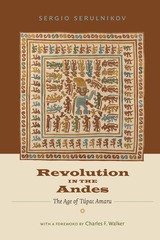
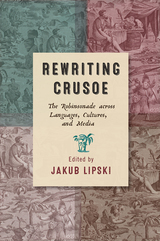
Published by Bucknell University Press. Distributed worldwide by Rutgers University Press.
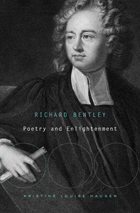
What made the classical scholar Richard Bentley deserve to be so viciously skewered by two of the literary giants of his day—Jonathan Swift in the Battle of the Books and Alexander Pope in the Dunciad? The answer: he had the temerity to bring classical study out of the scholar's closet and into the drawing rooms of polite society. Kristine Haugen’s highly engaging biography of a man whom Rhodri Lewis characterized as “perhaps the most notable—and notorious—scholar ever to have English as a mother tongue” affords a fascinating portrait of Bentley and the intellectual turmoil he set in motion.
Aiming at a convergence between scholarship and literary culture, the brilliant, caustic, and imperious Bentley revealed to polite readers the doings of professional scholars and induced them to pay attention to classical study. At the same time, Europe's most famous classical scholar adapted his own publications to the deficiencies of non-expert readers. Abandoning the church-oriented historical study of his peers, he worked on texts that interested a wider public, with spectacular and—in the case of his interventionist edition of Paradise Lost—sometimes lamentable results.
If the union of worlds Bentley craved was not to be achieved in his lifetime, his provocations show that professional humanism left a deep imprint on the literary world of England's Enlightenment.
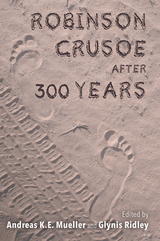

Russia and Iran, 1780–1828 was first published in 1980. Minnesota Archive Editions uses digital technology to make long-unavailable books once again accessible, and are published unaltered from the original University of Minnesota Press editions.
Modern Russo-Iranian relations date from the late eighteenth century, when after several centuries of commercial and diplomatic contact, the two nations entered a period of extended warfare for possession of the Caucasian borderlands, disputed territory that eventually fell to Russia. In her history of that struggle, Muriel Atkin reasseses the motives of major figures on both sides and views the Iranians with more sympathy than Western and Russian historians have usually accorded them. Russia embarked on her course in the Caucasus for reasons connected with defense or trade, and with a longterm imperial goal based on uncritical acceptance of prevailing European doctrines of empire. The new dynasty in Iran, on the other hand, had to fend off Russian attack and secure the borderlands in order to justify its basic claim to power. In the end, the wars brought major disruption to the already unstable borderlands, and left Iran with a discredited government and a controversy over reforms and relations with the West that would continue to cause turmoil in subsequent generations.
READERS
Browse our collection.
PUBLISHERS
See BiblioVault's publisher services.
STUDENT SERVICES
Files for college accessibility offices.
UChicago Accessibility Resources
home | accessibility | search | about | contact us
BiblioVault ® 2001 - 2025
The University of Chicago Press


